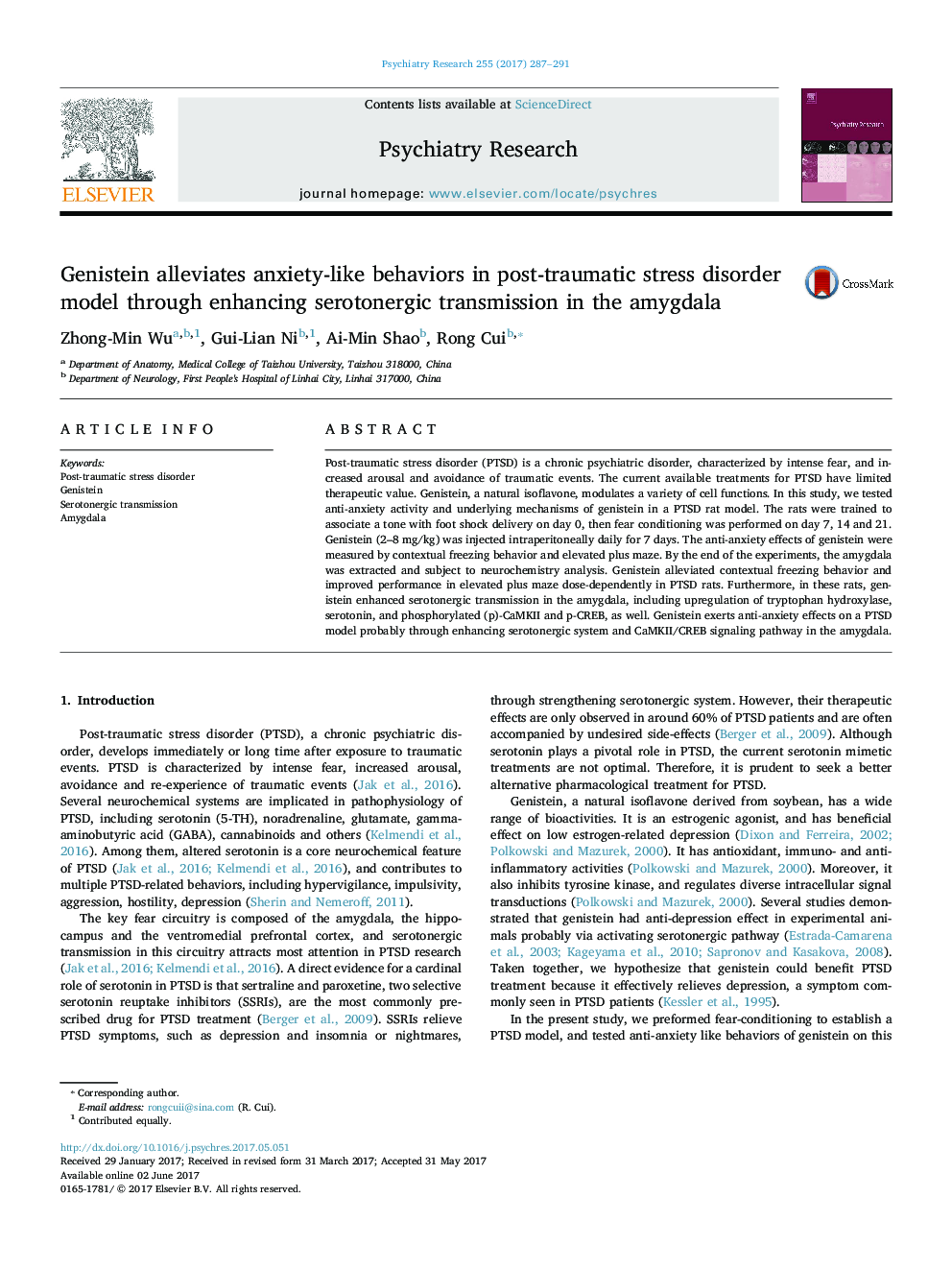| Article ID | Journal | Published Year | Pages | File Type |
|---|---|---|---|---|
| 4933206 | Psychiatry Research | 2017 | 5 Pages |
Abstract
Post-traumatic stress disorder (PTSD) is a chronic psychiatric disorder, characterized by intense fear, and increased arousal and avoidance of traumatic events. The current available treatments for PTSD have limited therapeutic value. Genistein, a natural isoflavone, modulates a variety of cell functions. In this study, we tested anti-anxiety activity and underlying mechanisms of genistein in a PTSD rat model. The rats were trained to associate a tone with foot shock delivery on day 0, then fear conditioning was performed on day 7, 14 and 21. Genistein (2-8Â mg/kg) was injected intraperitoneally daily for 7 days. The anti-anxiety effects of genistein were measured by contextual freezing behavior and elevated plus maze. By the end of the experiments, the amygdala was extracted and subject to neurochemistry analysis. Genistein alleviated contextual freezing behavior and improved performance in elevated plus maze dose-dependently in PTSD rats. Furthermore, in these rats, genistein enhanced serotonergic transmission in the amygdala, including upregulation of tryptophan hydroxylase, serotonin, and phosphorylated (p)-CaMKII and p-CREB, as well. Genistein exerts anti-anxiety effects on a PTSD model probably through enhancing serotonergic system and CaMKII/CREB signaling pathway in the amygdala.
Related Topics
Life Sciences
Neuroscience
Biological Psychiatry
Authors
Zhong-Min Wu, Gui-Lian Ni, Ai-Min Shao, Rong Cui,
